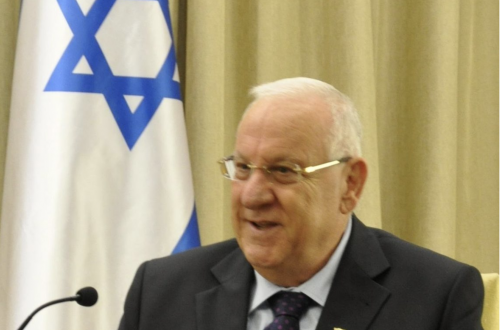It seems widely agreed that the recent vote in the Commons to recognize Palestine will have little influence on Israel/Palestine itself. Like most such activity it seems likely to have (had) most impact on people in the UK, although the Israeli media have certainly been covering the story.
The polarisation of views generated by the motion is somewhat complex, and in part apparently affected by how people interpret the motion’s precise rhetorical force. Because, obviously, it goes against the position of the Israeli government and was not welcomed by mainstream Israel advocacy groups, it has perhaps taken on a significance not immediately apparent in the fairly measured wording. Many supporting the motion seem to have focused (with some glee) far more on the way it challenged Israel’s position and discomfited its supporters than on its endorsement of a two state solution.
However this aspect of the motion did encourage some left/liberal supporters of Israel to approve the motion. Conversely, for some Israel haters, its unambiguous recognition of Israel’s right to exist far outweighed any possible help it might provide for the Palestinians. 5Pillarz was on unedifying form. Here Roshan Salih first reports that most Palestinians, Manuel Hassassian for example, approve the motion. But for Salih, attending to the wishes of Palestinians is much less important than wiping Israel off the map.
Clearly some well intentioned and moderate people supported this motion, and Labour Friends of Israel (unlike some I could mention) offered a temperate critique which acknowledged this, while stil opposing the move.
I am a strong supporter of Palestinian statehood. However complex the issues involved, it is a simple matter of justice that the Palestinian people should have their own homeland, one that lives in peace and security with its neighbour, Israel.
I can understand, therefore, why MPs will be tempted to vote on Monday for the motion proposed by Grahame Morris, Jeremy Corbyn, and Caroline Lucas, which appears to propose just that.
A few observations on the debate itself.
Richard Burden claimed that some used support for a two-state solution as a ‘theoretical mantra’ – but another ‘theoretical mantra’ might be the assertion that Israel has a right to defend herself.
Sir Richard Ottaway’s intervention was interesting.
The annexation of the 950 acres of the west bank just a few months ago has outraged me more than anything else in my political life, mainly because it makes me look a fool, and that is something that I resent.
Although it may be fully appropriate to deplore both this annexation and the settlement policy more generally, it seems very strange to single out this move as the most outrageous thing one has ever experienced in politics, particularly given what has been happening in Iraq and Syria. Alan Duncan’s point that ‘a lot of people feel intimidated when it comes to standing up for this issue’ seemed similarly questionable.
I’m sure readers will already have noted Andrew Bridgen’s reference to the ‘power of the Jewish lobby in America’ and Gerald Kaufman’s implication that antisemitism would be eradicated by the creation of a Palestinian state, and that Israel, rather than antisemites, is the main problem in that regard.
They are harming the image of Judaism, and terrible outbreaks of anti-Semitism are taking place. I want to see an end to anti-Semitism, and I want to see a Palestinian state.
And Mike Wood said that the situation in Palestine is much worse than apartheid.
However Anas Sarwar struck a rather different note by reminding listeners that with rights come responsibilities.
Statehood obliges the Palestinian Government to respect, protect and fulfil human rights for their people. It requires Palestinian forces to abide by international rules on armed conflict, and it requires the Palestinian people to accept and learn to co-exist with all their neighbours. The recognition of a state is not an endorsement of any political party or any group within Gaza or the west bank—far from it.
I found some of the arguments on both sides (both in the Commons and elsewhere) a bit boilerplate. However Sir Hugh Robertson’s contributions seemed judicious and urgent.
“Sir Alan Duncan: Was my right hon. Friend’s experience that Mahmoud Abbas was a genuine partner for peace?
Sir Hugh Robertson: It absolutely was. By the same token, I believe that many people on the Israeli side are genuine partners for peace. I am afraid, however, that the ability to make the crucial decisions and the really tough compromises necessary to deliver a peace process was in the end absent, as they have been in the past.
Thirdly, the international community needs to look at an appropriate and calibrated programme of incentives and disincentives at key points in a peace process, and recognition of a Palestinian state is one key component. It will be extraordinarily difficult, but the process must be done in such a way that it is in neither side’s interest to derail it.
…
I firmly believe that the principle of a Palestinian state is right and fair. I am delighted to be a signatory to the former Foreign Secretary’s amendment to that effect. However, I feel that declaring it unilaterally at this time could well be the catalyst for a further period of instability. The international community needs to re-engage on this issue as never before, led by the USA with the Arab world and Egypt alongside it. It must lay out a road map, including incentives and disincentives, to a final agreement in which the recognition of a Palestinian state is a key milestone. There is no doubt that that will be extraordinarily difficult, as many of our predecessors have found, but the alternative is unacceptably grim. This House can play a part in that process tonight.”
On the other side I appreciated some of the points made by Mike Gapes:
A power struggle is going on not just in the whole Arab world but within Palestinian society, between those who believe in a democratic and secular way forward and those who believe in political Islam that will wipe out not just moderate, secular Arabs but the Christians and the other religious minorities in Palestine. This motion is about not just the question of recognition but what kind of Palestinian state will be created—whether it will be a state that is in the hands of Hamas or, even worse, al-Qaeda elements within Gaza. It is about whether we, at this time, as an international community, recognise the momentous challenges that are facing the whole region.
…
We as an international community—the United States must also heed this message—must help the moderate forces in Fatah by getting their strategy, which is to take the issue internationally, to provide the way forward. Otherwise, the people who believe in the rocket attacks, the suicide bombs, the destruction of civilian communities and the killing of children—not just Israeli children but their own children, who are used as human shields—will gain the ascendency.
This is not a position that Hamas wants brought to the UN, and Hamas opposed the previous attempts by the Palestinian Authority. The leader of my party was quite right when he said that Hamas is a vile terrorist organisation. We need to support Fatah and the democratic and secular voices in Palestinian society. This is the chance for us to do so and for that reason I will vote for the motion and support the amendment. I hope that all other friends of Israel in this country will understand that this is the right thing to do.
Writing in Conservative Home a few days ago Paul Goodman expressed uncertainty as to whether a positive vote would help promote peace – or embolden Israel’s enemies:
Given the law of unintended consequences, it is impossible to be sure either way. None the less, the choice for MPs is straightforward. If they believe that recognition would help to bring about a settlement, and that a settlement itself is indispensable to peace in the region, then they should vote for it. If, however, they believe that it wouldn’t and isn’t, then they shouldn’t.
Goodman is unsure whether the effects of this vote will be positive or not. Although I share his uncertainty about possible outcomes – it’s easier to work out which people, on both sides of the motion, had sincere and positive motives for their decision.


